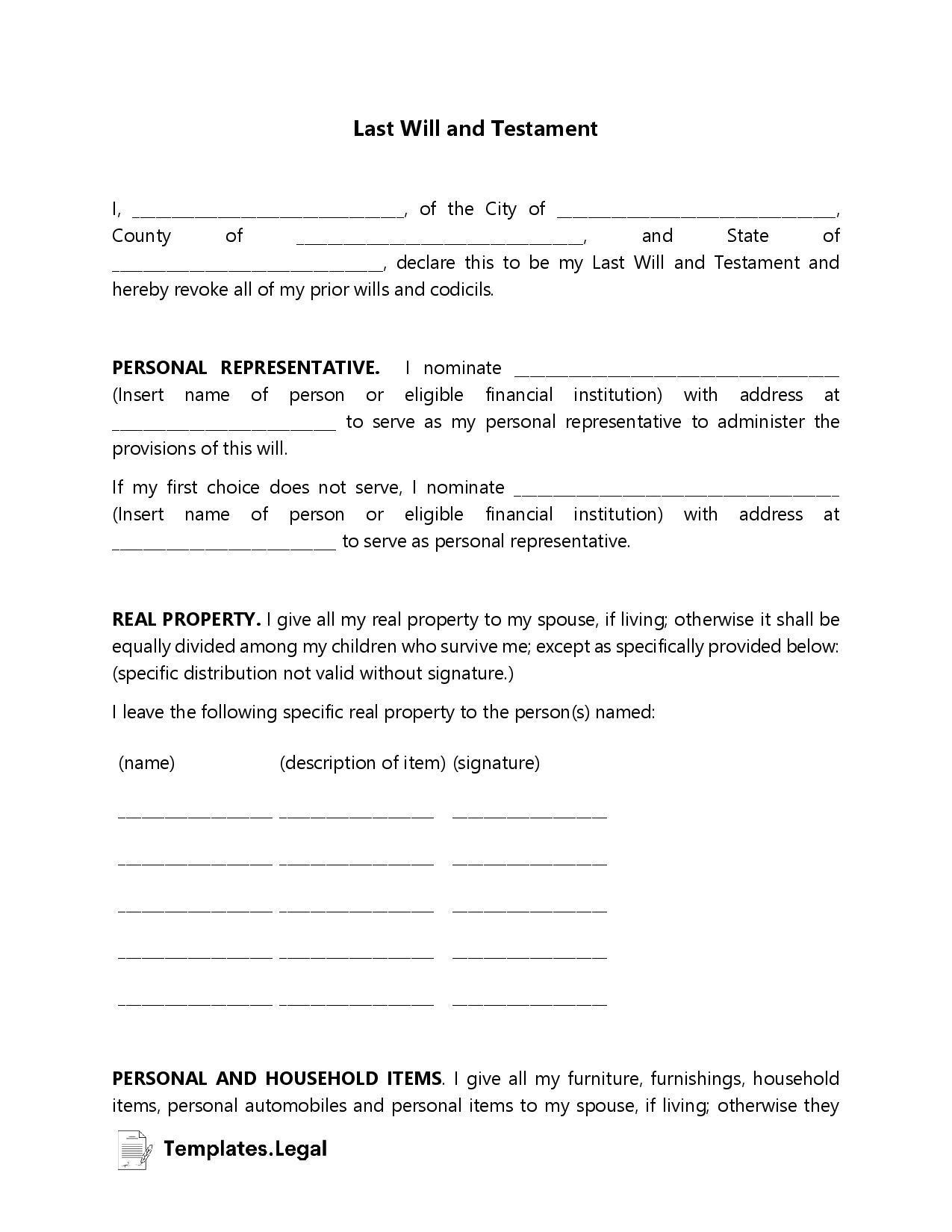While the topic of death is often avoided, preparing for it is a crucial part of life. One key element of this preparation is the creation of a last will and testament. This legal instrument acts as a guide for the distribution of your assets and the execution of your final wishes. But what is the real significance of a last will and testament, and why is it so vital? Let’s delve into the importance of this document and its role in preserving your legacy.
Grasping the Legal Basis of a Last Will and Testament
Understanding the fundamental legal document that is a last will and testament is crucial. It serves as a written statement of how an individual wants their assets and property distributed after their death. This document gives individuals control over their estate and ensures that their final wishes are fulfilled.
A primary function of a last will and testament is to name an executor who will be in charge of managing the estate and distributing assets as per the will’s terms. This helps to avoid misunderstandings and potential disputes among family members and beneficiaries. Additionally, a last will and testament can also appoint guardians for minor children, detail funeral and burial preferences, and specify any charitable contributions the individual wants to make.
By drafting a last will and testament, individuals can provide clear directives on how they want their estate managed, giving them peace of mind knowing their affairs will be handled according to their wishes. It is crucial for individuals to seek legal advice to ensure their last will and testament is legally sound and accurately reflects their intentions.
Safeguarding Your Assets and Guaranteeing Beneficiaries Receive Their Inheritance
A last will and testament plays a vital role in protecting your assets and ensuring your beneficiaries receive their inheritance. It is a legal document that allows you to specify how you want your assets distributed after your death. It acts as a guide for your loved ones to follow and provides clarity on your wishes.
Having a last will and testament in place can help prevent family disputes and ensure that your assets are distributed according to your wishes. It can also help reduce estate taxes and other expenses, allowing more of your estate to go to your beneficiaries.
Some primary functions of a last will and testament include:
- Specifying beneficiaries for particular assets
- Naming guardians for minor children
- Appointing an executor to manage your estate
- Providing for the distribution of assets not covered by other means, such as a trust or beneficiary designation
Providing Clear Directions and Preventing Possible Family Conflicts
In estate planning, a last will and testament plays a vital role. This legal document allows individuals to specify their wishes regarding the distribution of their assets and the care of their dependents after their death. By clearly stating who will inherit what, a last will and testament helps prevent confusion and disagreements among family members.
Furthermore, a last will and testament can also appoint an executor who will be responsible for executing the deceased’s wishes. This ensures that the estate is managed properly and that assets are distributed according to the deceased’s directives. Without a clear and legally enforceable document like a last will and testament, family members may be left to navigate complex legal processes and make difficult decisions on their own.
Besides providing clarity on asset distribution, a last will and testament can also address important issues such as guardianship of minor children, care for pets, and funeral arrangements. By including these details in the will, individuals can express their wishes and help prevent potential conflicts among family members during an already difficult time.
Estate Planning and Tax Consequences of a Last Will and Testament
In estate planning, a last will and testament plays a vital role in outlining how a person’s assets and possessions should be distributed upon their death. This legal document allows an individual to express their wishes and ensure that their loved ones are cared for according to their intentions.
One of the main purposes of a last will and testament is to provide clarity and avoid any potential disputes among family members regarding the distribution of the estate. By clearly stating who will inherit specific assets and how they should be divided, a will can help prevent confusion and disagreements that may arise after the individual’s death.
Moreover, a last will and testament can also have significant tax consequences for the beneficiaries. Depending on the size of the estate and the applicable tax laws, inheritances received through a will may be subject to estate taxes. It is essential to consider these tax implications when creating a will to ensure that beneficiaries are not burdened with unexpected tax liabilities.
Conclusion
In conclusion, the purpose of a last will and testament is to ensure that your final wishes are fulfilled and that your loved ones are cared for after you pass away. By clearly outlining who will receive your assets and how they will be distributed, you can provide peace of mind for yourself and your family. It’s never too early to start thinking about creating a will to protect your legacy and secure a brighter future for those you care about. Remember, it’s not just about what you leave behind, but the impact you have on those who matter most.

The Importance of a Last Will and Testament
When it comes to planning for the future, one document that often gets overlooked is a last will and testament. Many people are under the misconception that only the wealthy or elderly need to have a will in place, but the truth is that everyone can benefit from having one. A last will and testament is a legally binding document that outlines your wishes regarding how your assets should be distributed after your passing. It also allows you to appoint someone to handle your affairs and make important decisions on your behalf.
Benefits of Having a Last Will and Testament
There are several key benefits to having a last will and testament, including:
- Control Over Your Assets: A will allows you to specify who will inherit your assets, ensuring that your wishes are carried out.
- Protecting Your Loved Ones: By having a will in place, you can provide for your family and loved ones, helping to ease their financial burden during a difficult time.
- Choosing an Executor: You can appoint someone you trust to carry out your wishes and handle your estate, rather than leaving these decisions up to the court.
- Minimizing Family Disputes: Having a clear and legally binding document outlining your wishes can help prevent disputes among family members regarding your estate.
- Peace of Mind: Knowing that your affairs are in order and that your loved ones will be taken care of can provide peace of mind for you and your family.
Practical Tips for Creating a Last Will and Testament
When creating a last will and testament, there are several important considerations to keep in mind:
- Consult with a Lawyer: While it is possible to create a will on your own, consulting with a lawyer can ensure that your document is legally sound and will hold up in court.
- Be Specific: Clearly outline your wishes regarding the distribution of your assets and any other important decisions you want to make.
- Update Regularly: Life circumstances can change, so it is important to update your will regularly to reflect any major life events, such as marriage, divorce, or the birth of a child.
- Store Safely: Make sure to store your will in a safe and secure location where it can be easily accessed by your executor after your passing.
Case Studies
Consider the following case studies to understand the impact of having a last will and testament:
| Name | Scenario | Outcome |
|---|---|---|
| John Smith | Did not have a will in place | Family members had to go through a lengthy and costly legal process to determine the distribution of assets. |
| Sarah Johnson | Had a clear and updated will | Her assets were distributed according to her wishes, and family disputes were avoided. |
Firsthand Experience
Having a last will and testament is something that everyone should consider, regardless of age or wealth. I personally experienced the peace of mind that comes with having a will in place after the passing of a loved one. Seeing how their wishes were carried out without any family disputes or legal headaches reinforced the importance of having a will in place. It may not be the most pleasant topic to think about, but taking the time to create a will can provide invaluable protection and peace of mind for you and your loved ones.
Overall, a last will and testament is a crucial document that everyone should have in place. It provides a clear roadmap for how your assets should be distributed and ensures that your wishes are carried out. By understanding the importance of a will and taking the necessary steps to create one, you can protect your loved ones and provide peace of mind for yourself. Don’t wait until it’s too late – start planning for the future today.


